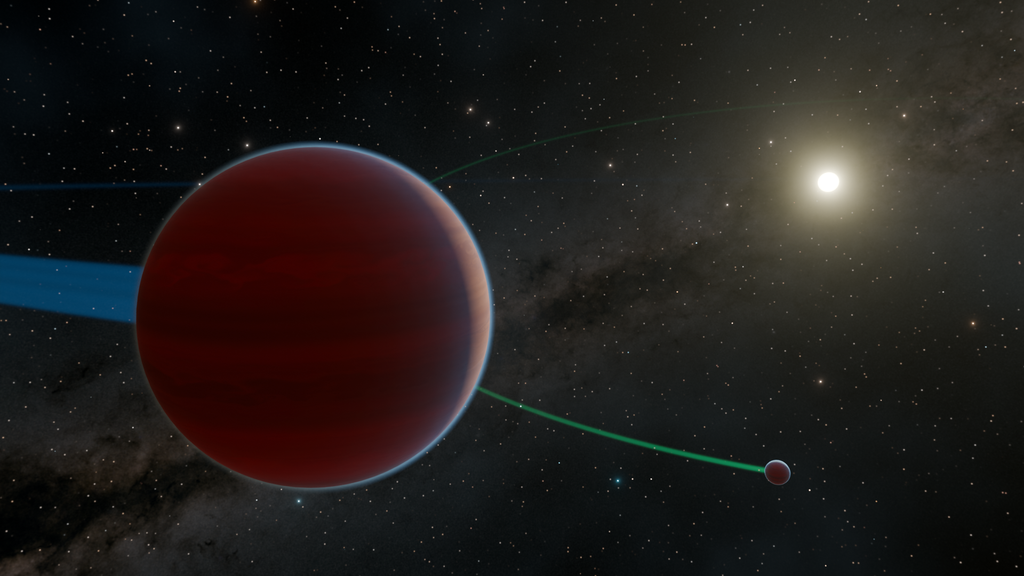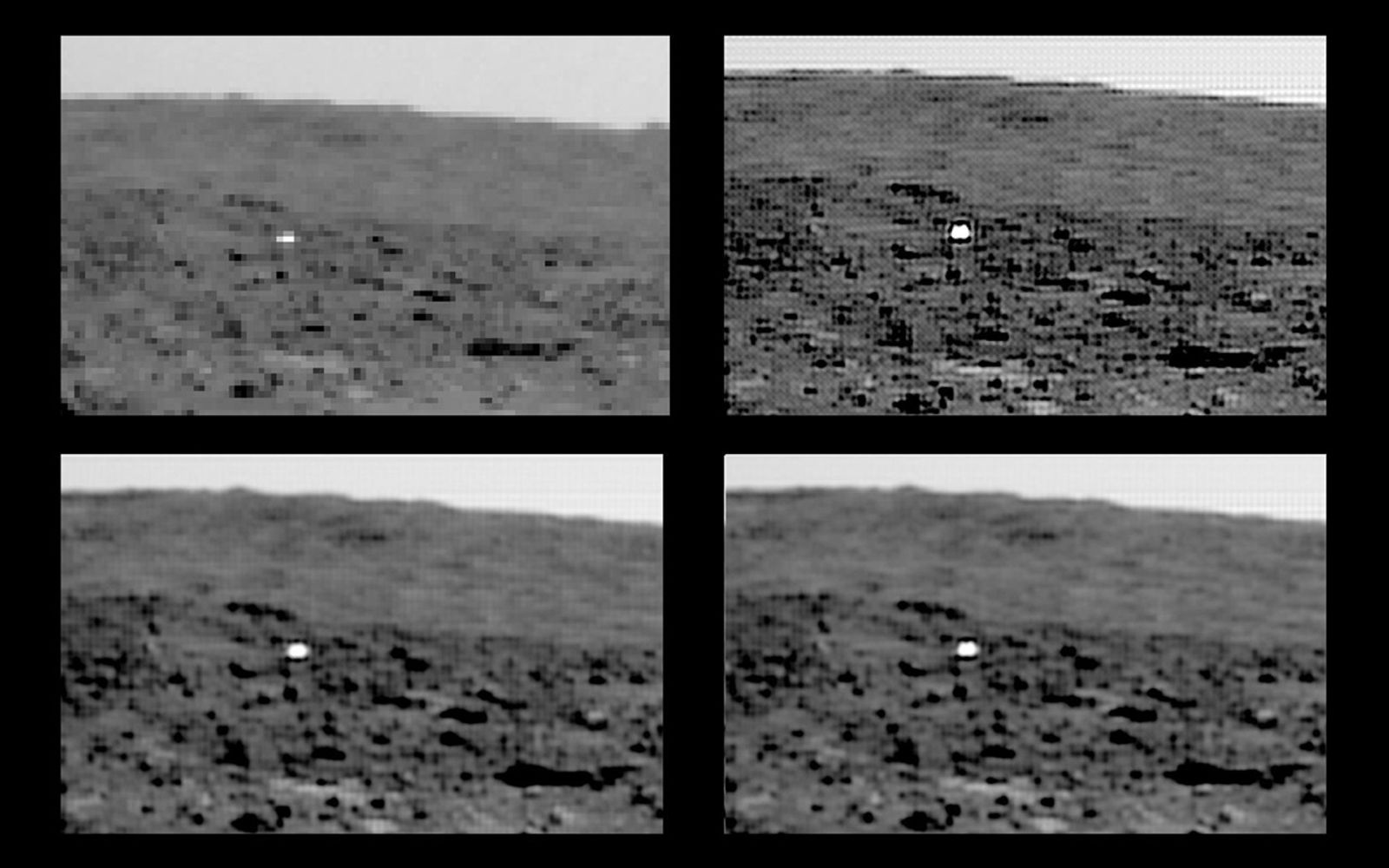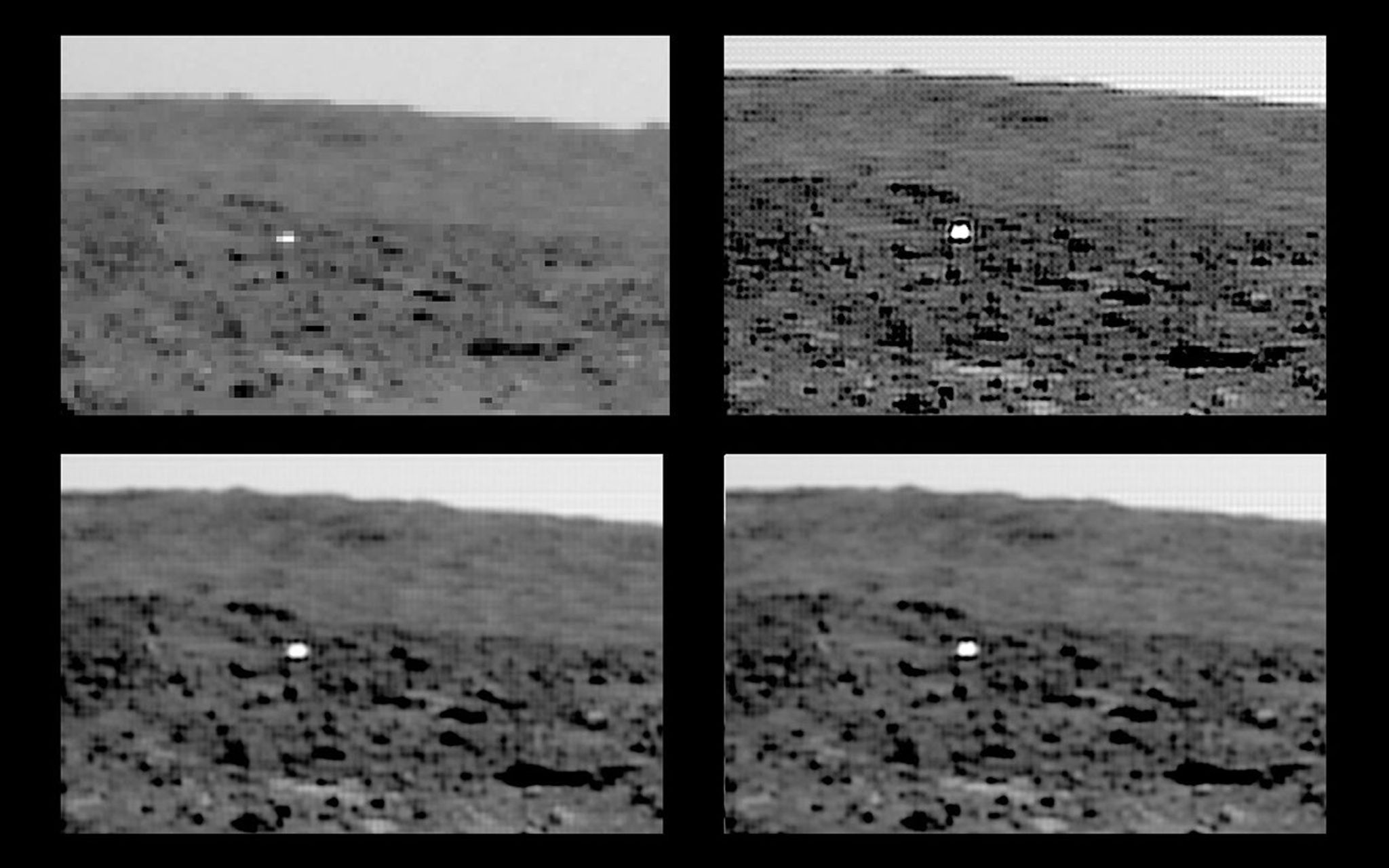Backshell Located
| Credit | NASA/JPL/University of Arizona |
|---|---|
| Language |
|
During the Entry, Descent and Landing phase of the mission, the final step is the separation of the lander and its surrounding airbags from the backshell. The conical backshell above the lander contains three solid rocketmotors each providing about a ton of force for over 2 seconds. They are activated by the computer in the lander. Electrical wires that run up the bridle close relays in the backshell which ignite the three rockets at the same instant.
The brief firing of the solid rocketmotors at an altitude of 80-100 meters is intended to essentially bring the downward movement of the lander to a halt some 12 meters above the surface. The bridle separating the lander and heat shield is then cut in the lander, resulting in the backshell driving up and into the parachute under the residual impulse of the rockets, while the lander, encased in airbags, falls to the surface.
The backshell is to the southeast of the lander, and in front and to the left of "Big Crater."
Mars Pathfinder is the second in NASA's Discovery program of low-cost spacecraft with highly focused science goals. The Jet Propulsion Laboratory, Pasadena, CA, developed and manages and Mars Pathfinder mission for NASA's Office of Space Science, Washington, D.C. JPL is an operating division of the California Institute of Technology (Caltech). The Imager for Mars Pathfinder (IMP) was developed by the University of Arizona Lunar and Planetary Laboratory under contract to JPL. Peter Smith is the Principal Investigator.
Photojournal note: Sojourner spent 83 days of a planned seven-day mission exploring the Martian terrain, acquiring images, and taking chemical, atmospheric and other measurements. The final data transmission received from Pathfinder was at 10:23 UTC on September 27, 1997. Although mission managers tried to restore full communications during the following five months, the successful mission was terminated on March 10, 1998.

























